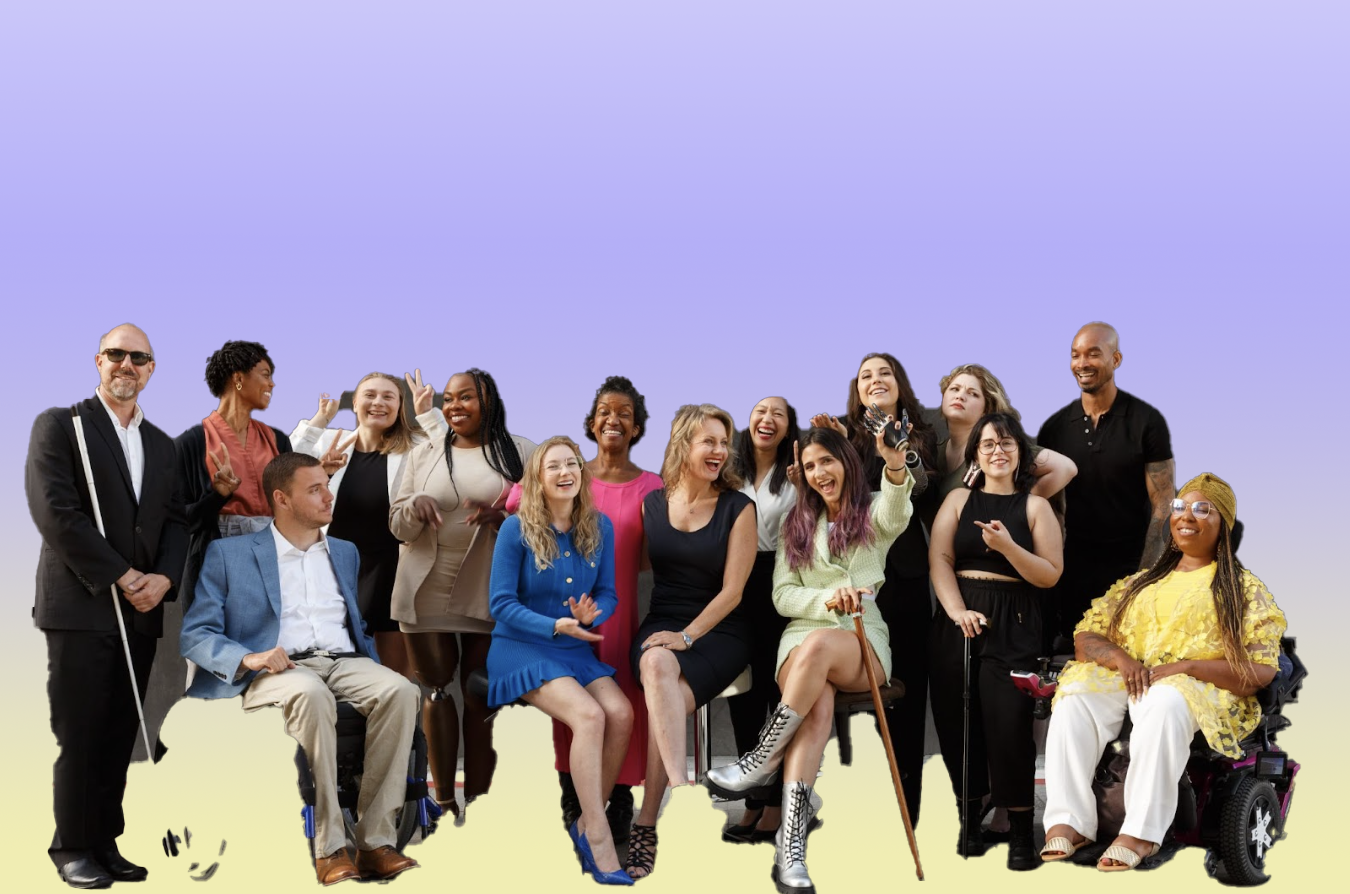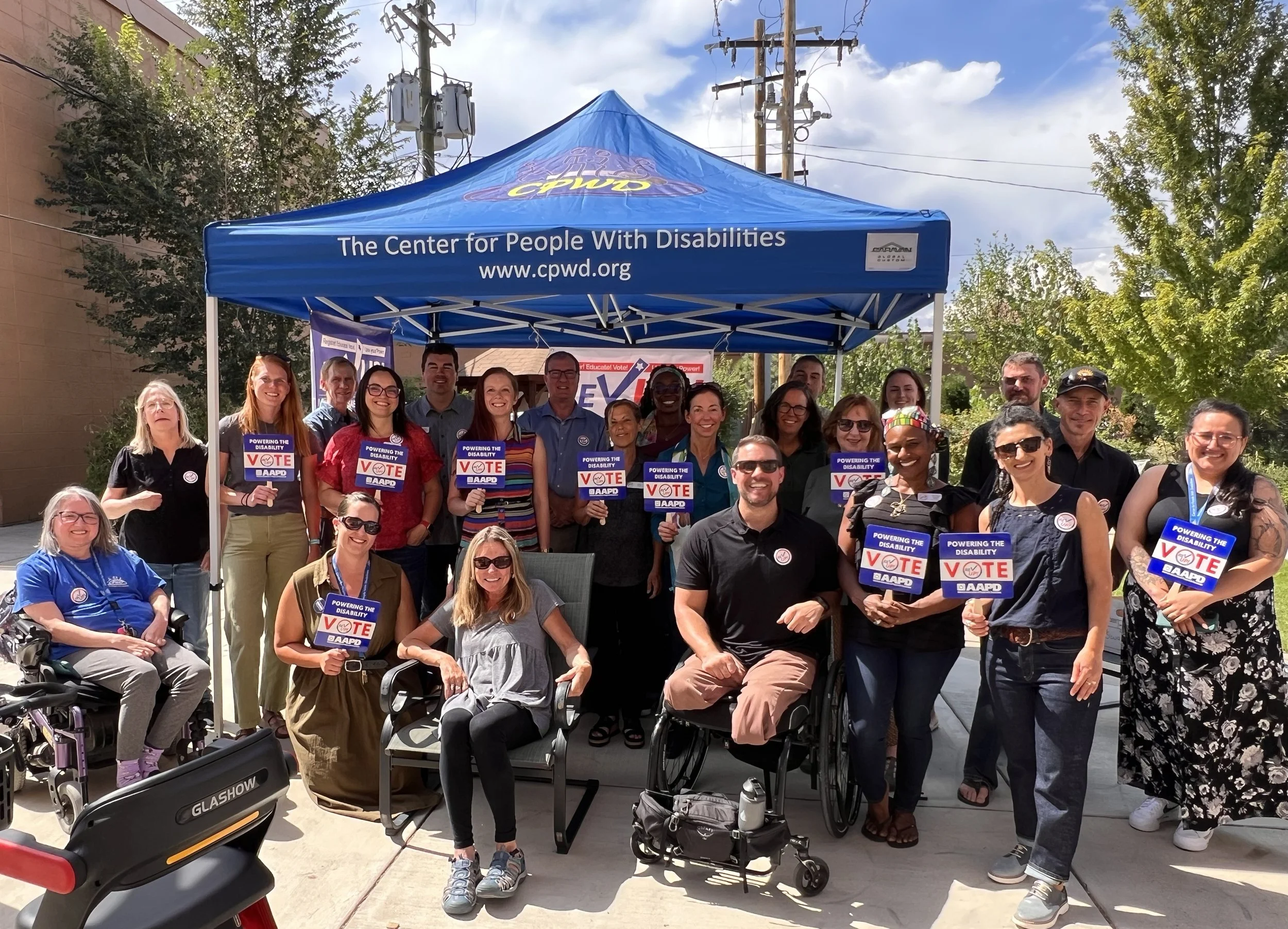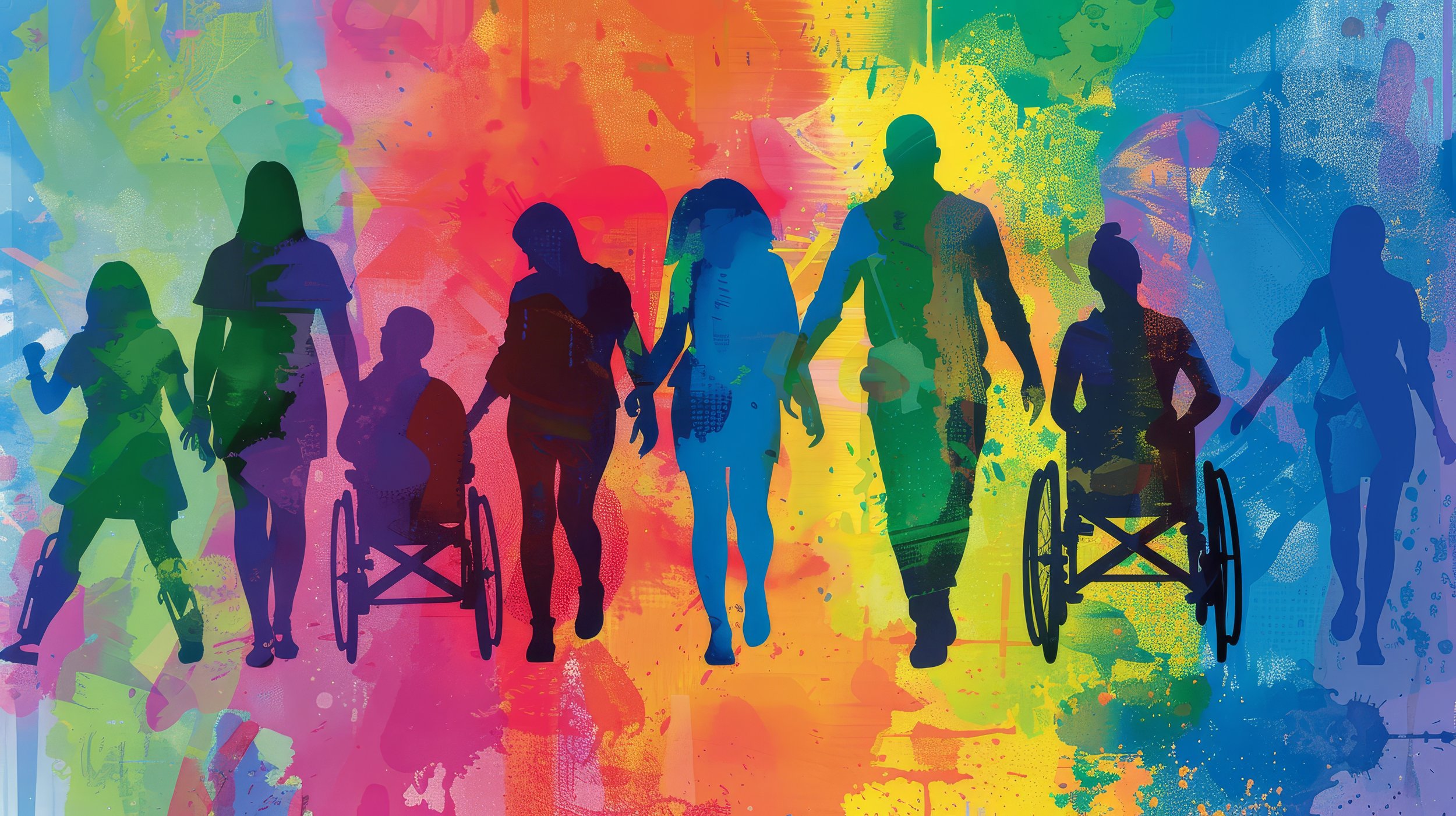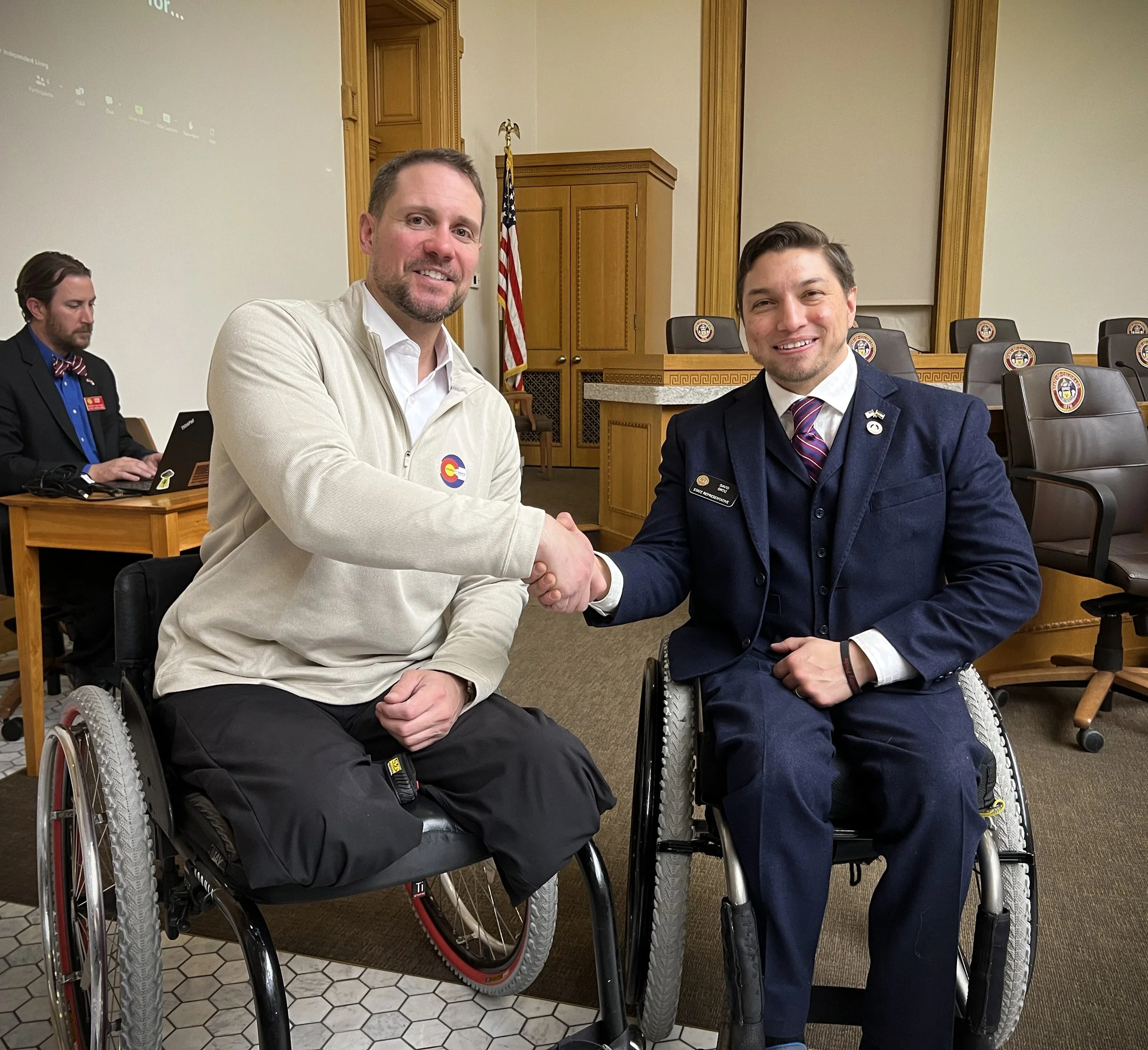
Advocacy – Promoting Equality and Accessibility for the Individual and in the Community

Advocacy means speaking up and having a voice. That hasn’t always been easy for people with disabilities, who have historically been marginalized and not heard. At CPWD, we believe a critical component to independent living is advocacy.
Self-Advocacy
Learning how to advocate for oneself, whether with a landlord, employer, doctor, or even within your family, is essential to your independence, and your rights of choice and expression.
Our Individual Advocacy Program works with people with disabilities to inform, educate and empower you to self-advocate. We teach people what their rights are, what the laws are, and how to be assertive in the face of discrimination or even misunderstanding. We support individuals through this process, and over time, help them build the confidence and self-esteem to advocate for themselves. Our goal is to empower people to feel confident self-advocating for independent living and their own individual needs.
If you have any questions about individual or systems advocacy, call (303) 442-8662 or contact us
Systems Advocacy
At the community, state, and national levels, we believe it’s important to advocate for policies and laws that will protect benefits, accessibility, equity and equality.
CPWD makes great efforts to bring the voice of people with disabilities to new bills, laws and policies, to ensure that we are heard at the level of governance and policy.
-

One way we engage in systems advocacy is by including people with disabilities in decision-making groups that determine the structure of benefits such as Medicaid, housing, and other state-run programs.
-

We also conduct awareness campaigns to inform and improve systems such as public transportation, accessibility to public places and private business, and access to information and education.
Nothing About Us Without Us
We participate and host conversations with local government agencies and elected officials, and often join in state and national movements that support efforts to bring equality and accessibility to people with disabilities across the country.
Organizational Public Policy and Advocacy Agenda 2025
Check out the current legislation CPWD is involved with.
Federal Legislation
The Universal Design Tax Incentive Act: H.R. 8547
This bill establishes a tax credit for certain costs during the construction or renovation of residential and commercial buildings that are certified by the Department of Housing and Urban Development (HUD) as satisfying Universal Design Standards. It also creates a federal working group of stakeholders including Centers for Independent Living to establish universal design standards.
SSA Claims Processing Improvement Act: H.R. 8546
This bill requires the Social Security Administration (SSA) to update an ongoing national training program for field office staff and processors who review claims by those receiving Disability Insurance and Supplemental Security and establish a formal process to annually analyze training needs based on identified processing error trends. Additionally, this legislation requires SSA to improve customer service standards and ensure that all services at the SSA, including appeals of covered benefit denials, are in a format that is appropriate for the specific needs of individuals with disabilities, such as audio versions of notifications, and large print and braille options. Finally, the bill amends the Social Security Act to provide for certain technology modernizations and ensure that all decisions to terminate Disability Insurance are reviewed by an additional claims’ processor.
Community Integration Plan Individuals with Disabilities/ HB25- 1017
Lays the groundwork for putting Olmstead into state statute should the Supreme Court of the United States overturn the decision
State Legislation
Vocational Rehabilitation Services/ HB25 - 1018
Improves DVR by making it easier to qualify for services, regardless of income and removes the requirement that families financially contribute to DVR services. DVR funding is all federal, so removing these requirements will make services available to more people and there will be fewer hoops for people to jump through in order to get services without placing any additional strain on the state budget
Paratransit Services / HB25 - 1007
Paratransit Services - Transportation Legislation Review Committee.
Currently Unnamed
Creating an enterprise for the Disabled Users Telephone Fee to protect the funding for programs that serve the Deaf, Hard of Hearing, and DeafBlind
Currently Unnamed
Updating Colorado’s Anti-Discrimination Act to align statute of limitation deadlines and allow for certain kinds of damages not currently allowed.
Accessibility Standards in Building Codes / HB25 - 1030
Ensures that when new building codes are adopted, they meet or exceed current accessibility standards




